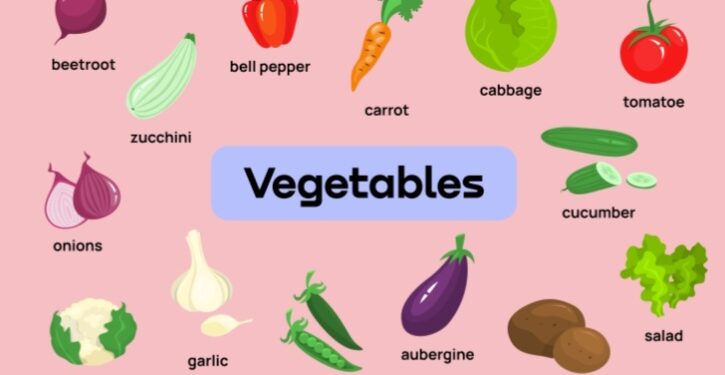Kidney stone is a crucial, painful, and discomforting health condition, that is caused by the crystallization of minerals and salts in the kidneys. It can depend upon your diet and the types of vegetables you consume regularly, not all vegetables are created equal in this regard.
In this article, we will explore the top 10 vegetables to Avoid Kidney Stones. These vegetables are not only delicious but also packed with nutrients that can support your kidney health and reduce the risk of stone formation. The article is written completely under the guidance of the best urologist in Jaipur, Dr Ravi Gupta.
TOP 10 Best Vegetables to Avoid Kidney Stones Problem
1 Broccoli
As Broccoli is a low-oxalate vegetable, it reduces the risk of calcium oxalate kidney stone formation. It’s rich in calcium and magnesium, which can bind to oxalate in the digestive tract and reduce oxalate absorption. Additionally, its high water content promotes urine dilution, minimizing the concentration of stone-forming substances.
2 Cauliflower
Cauliflower is rich in water and fiber, promoting hydration and maintaining optimal urinary function, which can prevent stone formation. Including cauliflower in your balanced diet with plenty of fluids will contribute to kidney stone prevention by minimizing the risk factors associated with their formation.
3 Carrots
Carrots are rich in antioxidants and fiber, and can potentially help reduce the risk of kidney stones. They aid in maintaining proper hydration and a healthy urinary system by increasing urine volume. It dilutes the concentration of minerals, such as calcium and oxalate, which are the reason for stone formation. Additionally, carrots contain vitamin A, which may promote kidney health.
4 Cabbage
Cabbage vegetables help reduce the risk of kidney stones due to their high water content and rich potassium levels. Additionally, potassium can counterbalance the effects of sodium, reducing calcium excretion in the urine, which is a common factor in kidney stone development. Including cabbage in your diet can contribute to overall kidney stone prevention through improved hydration and electrolyte balance.
5 Lettuce
Lettuce vegetables, like romaine or iceberg lettuce, can help reduce the risk of kidney stones due to their high water content and low oxalate levels that prevent minerals from crystallizing and forming stones. Eating lettuce in your diet can vary depending on your personal preferences and dietary needs. Generally, including lettuce in your meals, a few times a week can be a healthy choice. It’s a low-calorie, nutrient-rich option that can add crunch and freshness to salads, sandwiches, and wraps.
6 Celery
Celery contains compounds like potassium and antioxidants that can help reduce the risk of kidney stones. Potassium helps balance the body’s acidity and prevent the formation of certain types of stones, while antioxidants may protect against oxidative stress, a factor in stone formation. However, for overall health and potential kidney stone prevention, consuming celery or other vegetables regularly as part of a balanced diet is advisable. You can include celery in salads, snacks, or as a side dish.
7 Green beans
Green beans, rich in fiber, potassium, and antioxidants, can help reduce the risk of kidney stones. their potassium content may counterbalance the effects of high-sodium diets that contribute to kidney stone formation. It’s advisable to consume them in moderation as part of a balanced meal plan. Aim to include green beans and other low-oxalate vegetables a few times a week, rather than making them a daily staple.
8 Asparagus
Asparagus may help reduce the risk of kidney stones due to its high water content and natural diuretic properties. Additionally, asparagus is a good source of potassium, which can counteract the negative effects of high-sodium diets that contribute to stone formation. However, a balanced diet and proper hydration are key to kidney stone prevention, with asparagus being just one component of a healthy approach.
9 Mushrooms
Mushrooms, while not a direct remedy for kidney stones, can be part of a kidney stone-friendly diet. By incorporating low-oxalate foods like mushrooms into your diet and maintaining proper hydration, you can potentially reduce your risk of developing kidney stones. However, it’s essential to consult a healthcare professional for a comprehensive approach to kidney stone prevention, which may include dietary adjustments.
10 Onions
Onions are believed to help reduce the risk of kidney stones due to their high quercetin content (Quercetin is a powerful antioxidant). Onions have diuretic properties, promoting increased urine production and flushing out potential stone-forming minerals.
Conclusion
In conclusion, incorporating a variety of low-oxalate vegetables into your diet can be a smart strategy to reduce the risk of kidney stones. These kidney stone-friendly vegetables, when consumed as part of a balanced diet, play a crucial role in maintaining urinary health and minimizing the formation of painful kidney stones. However, it’s equally important to be mindful of vegetables to avoid kidney stones, such as spinach and beets.
Remember to consult a healthcare professional like Dr Ravi Gupta, who is the best urology doctor in Jaipur for a comprehensive approach to kidney stone prevention.


 Home
Home









